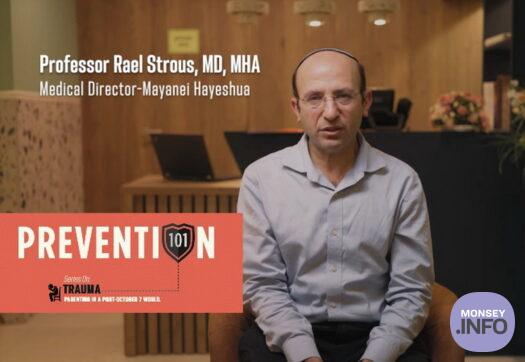
Prevention101: What Should I Look For In A Trauma Therapist?
Series on Trauma: Episode 12 – Parenting in a Post-October 7th World. The series addresses questions regarding trauma following the massacre of October 7th and the surge of global anti-Semitism.
What should I look for in a trauma therapist?
Part of the basic training of every social worker, psychologist, and therapist is learning how to cope with trauma. But if we are looking for someone who specializes in trauma, we want to make sure the therapist has experience in dealing with trauma, has experience of some of the most important modalities of treating trauma related to prolonged exposure, sometimes EMDR, cognitive processing therapy, sometimes CBT, so there are specific therapies that are geared or aimed toward dealing with trauma.
Sometimes trauma is expressed in substance abuse, so then a therapist who has experience in dealing with trauma and substance abuse is needed. Very often trauma is expressed in eating disorders, depression, or anxiety, so we’d want to find a therapist who also has familiarity and experience in dealing with those particular areas.
We want to make sure that even if the therapist is experienced, that they have had the opportunity to be supervised and have gone through various extra training in that particular area. All therapists should have that training. The most important issue is a good fit. You want a good fit between your child and that therapist. Sometimes, part of that is related to cultural sensitivity.
If a child is a Gerer Chosid and is brought to a secular therapist who is full of tattoos coming from a completely different world, it might be difficult for the child to connect to the therapist. That doesn’t mean the therapist is not a good therapist and can’t manage the problem, but sometimes cultural issues can enter the equation of dealing with someone in terms of communication.
This is especially true for children who sometimes aren’t aware and aren’t able to overcome some of the nuances of differences in approaches to life and to judge things very carefully in the beginning based on appearances. Children don’t always have the capacity or the maturity to overcome or to get over those initial barriers. An adult can sometimes get beyond those barriers. Regardless, considering cultural differences, especially with children, is important when choosing a therapist.









